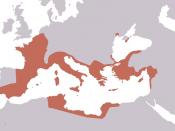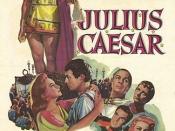Kings are everywhere in Shakespeare, from Hamlet to Richard the Second, from Henry the Eighth to Macbeth; many of the plays contain a central element of a king or autocratic head of state such as Julius Caesar, for example. They focus more specifically on the nature of that person's power, especially on the question of removing it; what it means on both a political and psychological level, how it can be achieved, and what will happen afterwards. This is not surprising, considering the times Shakespeare was living in: with the question of who ruled and where their authority came from being ever more increasingly asked in Elizabethan and Jacobean times the observations he makes are especially pertinent.
Kings and kingship also lend themselves well to drama; the king is a symbol of the order (or disorder) of the day and a man who possesses (almost) absolute authority and the status that accompanies that, whilst in contrast he is also a human being with the ordinary weaknesses of that condition.
Shakespeare is also said to have loved the drama of killing; according to legend he would "make a speech when he killed a calf" in his father's abattoir (Richard Wilson: 'A Brute Part'.) The dramatic image of sacrifice is particularly prevalent in Julius Caesar; Brutus says:
" Let us be sacrificers but not butchers, Caius.
We all stand up against the spirit of Caesar;
And in the spirit of men there is no blood:
O! then that we could come by Caesar's spirit,
And not dismember Caesar. But, alas!
Caesar must bleed for it. "
( II.i.166-171 )
Many images of sacrifice are present throughout the play, such as the servant returning and saying to Caesar:
" They would not have you stir forth to-day.
Plucking the entrails of...



Shakespeare's plays
Indeed, many of Shakespeare's plays do revolve around killing the king, and you have written a good essay in response to the central question of regicide. Shakespeare was interested in writing plays that would be commercial successes. As a consequence, he knew he had to tailor them to the interests of his Elizabethan audience which was quite taken by royalty and murder, although most would never dream of committing murder themselves. Of course, Shakespeare's plays did much more than spark vicarious thrills in his audience. They are masterpieces which illuminate topics of enduring interest such as human nature, power, and ambition. While the bard's language has become somewhat archaic for a modern audience, his themes have not. Your report was well expressed and thought out. Quality job!
7 out of 7 people found this comment useful.